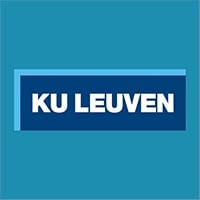PhD on control of wind-farm atmosphere interaction
Position Details (PhD Research Project)
Several PhD positions are available, supervised by Prof. Johan Meyers and hosted in the Turbulent Flow Simulation and Optimization (TFSO) research group at the department of Mechanical Engineering of KU Leuven. The research is part of the ERC Advanced Grant “Real-time optimal control of wind-farm atmosphere interaction (REALTOWIND)” led by Prof. Johan Meyers. The research is also integrated into the broader wind-farm control research of the TFSO group at KU Leuven, which is one of the leading research groups on wind farms worldwide. ERC is the premier European funding organization for excellent frontier research. It’s mission is to encourage the highest quality research in Europe through competitive funding and to support investigator-driven frontier research across all fields, based on scientific excellence
Website unit
Project
BACKGROUND
Current Wind-Farm flow Control (WFC) focuses on the interaction of wind turbines through their wakes, and relies on fast heuristic wake models that are mostly considered in an open-loop control framework. However, modern wind farms interact with the atmosphere at much larger scales, such, e.g., as their excitation of atmospheric gravity waves. WFC response is thereby not only governed by intra-farm turbine wakes, but possibly even more by the interaction between the larger atmospheric mesoscales and the farm operation. The only models that realistically capture these aspects down to the wake scale are large-eddy simulations (LES), which are generally run on high-performance computers, yet considered orders of magnitude too slow for use in real-time model predictive control. Recently however, we have shown that coarse-grid LES integrated in a time-decoupled model predictive control (TDMPC) framework, is about a factor three too slow only for real-time use, while potentially still being effective at realizing the WFC objective. With wind turbines being the largest manmade “flow actuators” existing today, and smaller-sized systems exhibiting faster time scales, the wind farm will be the first turbulent flow system in which LES can be used as a real-time control model.
PHD PROJECT DESCRIPTION
Research aims at inducing a paradigm shift in the use of large-eddy simulation (LES), by developing a first fully integrated LES-based time-decoupled model predictive controller applied to wind farms and demonstrate it in a high-fidelity emulator environment, as well as, in part, using field data. This raises following fundamental research challenges: diverging sensitivities of perturbations in turbulent flows (chaotic systems) over long time horizons, the sparse nature of measurements in the atmosphere required for state estimation in the control loop, the limited understanding of wind-farm atmosphere interaction in non-neutral stratification, and the efficient emulation of WFC using high-performance computing. As part of the REALTOWIND team, you contribute towards solving these challenges. This research will involve scientific computing, programing in Fortran and Python, parallel computing and algorithm development for optimal control with LES.
Profile
Candidates have a master degree in one of the following or related fields: fluid mechanics, aerospace engineering, mathematical engineering, mechanical engineering, or computational physics. They should have a good background or interest in wind energy, fluid mechanics, optimization, simulation, and programming (Fortran, C/C++, Python, …). Proficiency in English is a requirement. The position adheres to the European policy of balanced ethnicity, age and gender. Persons of all origins and gender are encouraged to apply.
Offer
Immediate start is possible. The PhD position lasts for the duration of four years, and is carried out at the University of Leuven. The candidate also takes up a limited amount (approx. 10% of the time) of teaching activities. The remuneration is generous and is in line with the standard KU Leuven rates. It consists of a net monthly salary of about 2400 Euro (in case of dependent children or spouse, the amount can be somewhat higher); social security is also included. Following Belgian law, the salary is automatically adjusted for inflation based on the smoothed health index.
Interested?
To apply, use the KU Leuven online application platform (applications by email are not considered). Applications should ideally include:
a) an academic CV and a PDF of your diplomas and transcript of course work and grades
b) a statement of research interests and career goals, indicating why you are interested in this position
c) a sample of technical writing in English, e.g. a paper with you as main author, or your bachelor or master thesis
d) preferably at least one recommendation letter
d) a list of at least two additional references (different from recommendation letters): names, phone numbers, and email addresses
e) preferably some proof of proficiency in English (e.g. language test results from TOEFL, IELTS, CAE, or CPE)
Please send your application as soon as possible. Apply by October 1st, 2025 at the latest
Starting Date: immediate start possible, preferably by November 1st 2025.
KU Leuven strives for an inclusive, respectful and socially safe environment. We embrace diversity among individuals and groups as an asset. Open dialogue and differences in perspective are essential for an ambitious research and educational environment. In our commitment to equal opportunity, we recognize the consequences of historical inequalities. We do not accept any form of discrimination based on, but not limited to, gender identity and expression, sexual orientation, age, ethnic or national background, skin colour, religious and philosophical diversity, neurodivergence, employment disability, health, or socioeconomic status. For questions about accessibility or support offered, we are happy to assist you at this email address.



 KU Leuven
KU Leuven